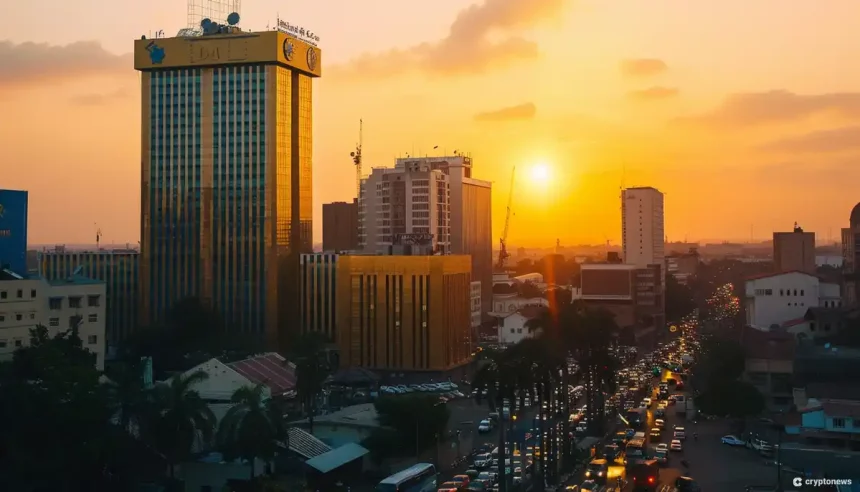Last updated:
| 1 min read
Nigeria’s Central Bank teamed up with the blockchain-powered financial platform Gluwa Nigeria on March 7 to accelerate the use of eNaira, the nation’s central bank digital currency (CBDC).
This collaboration with Gluwa highlights the ongoing efforts by Nigeria’s Central Bank to overcome challenges in both financial inclusion and CBDC adoption.
Nigerian Central Bank Seeks eNaira Growth
Gluwa intends to provide credit profiles for unbanked individuals through integration with the eNaira. This will create a system where ratings and credit scores can be assigned digitally, enabling more Nigerians to access credit in an efficient, CBDC-compliant manner. Gluwa’s solution will also support credit management, settlement, and assessment for local fintech lenders.
In addition to loan origination, Gluwa’s credal solution will incorporate credit management, settlement, and assessment for local fintech lenders.
Since its launch in October 2021, the Central Bank of Nigeria has been looking for ways to increase the adoption of the eNaira. Data from the IMF shows that only about 1% of Nigerians with bank accounts possess eNaira wallets, and over 98.5% of them are unused.
The issue of credit systems has been a longstanding barrier in Africa, and blockchain-based solutions like Gluwa seek to change that.
These solutions use tokenization to bridge the data gap that exists in traditional credit scoring, drawing from peer-to-peer transactions. Gluwa’s presence in Nigeria extends back to 2022 when they worked with Lagos State to tokenize agricultural assets using their real-world assets (RWAs) technology.
Cryptocurrency Regulations in Nigeria
The Nigerian government has a complex relationship with cryptocurrency, despite the introduction of the eNaira in 2021. Initial bans on commercial banks working with the crypto sector were reversed, but inconsistent regulations still pose challenges.
The Nigerian Communications Commission (NCC) recently blocked access to several cryptocurrency firms’ platforms, including Binance, citing Naira market manipulations within its peer-to-peer (P2P) market framework. According to Chainalysis 2023 Global Crypto Adoption Index, Nigeria ranked first for P2P trades.
The situation intensified when major government agencies reportedly detained two senior Binance executives and imposed a $10 billion fine. A senior government official later refuted these claims, however.
Tae Oh, Gluwa’s founder and CEO, emphasized that his company’s solution seeks to boost eNaira adoption while leading blockchain-driven financial services innovation in Nigeria and across the continent.
Tae also heads the Creditcoin Network, a layer-1 blockchain similar to Gluwa, further underlining his commitment to advancing financial solutions.
Read the full article here




